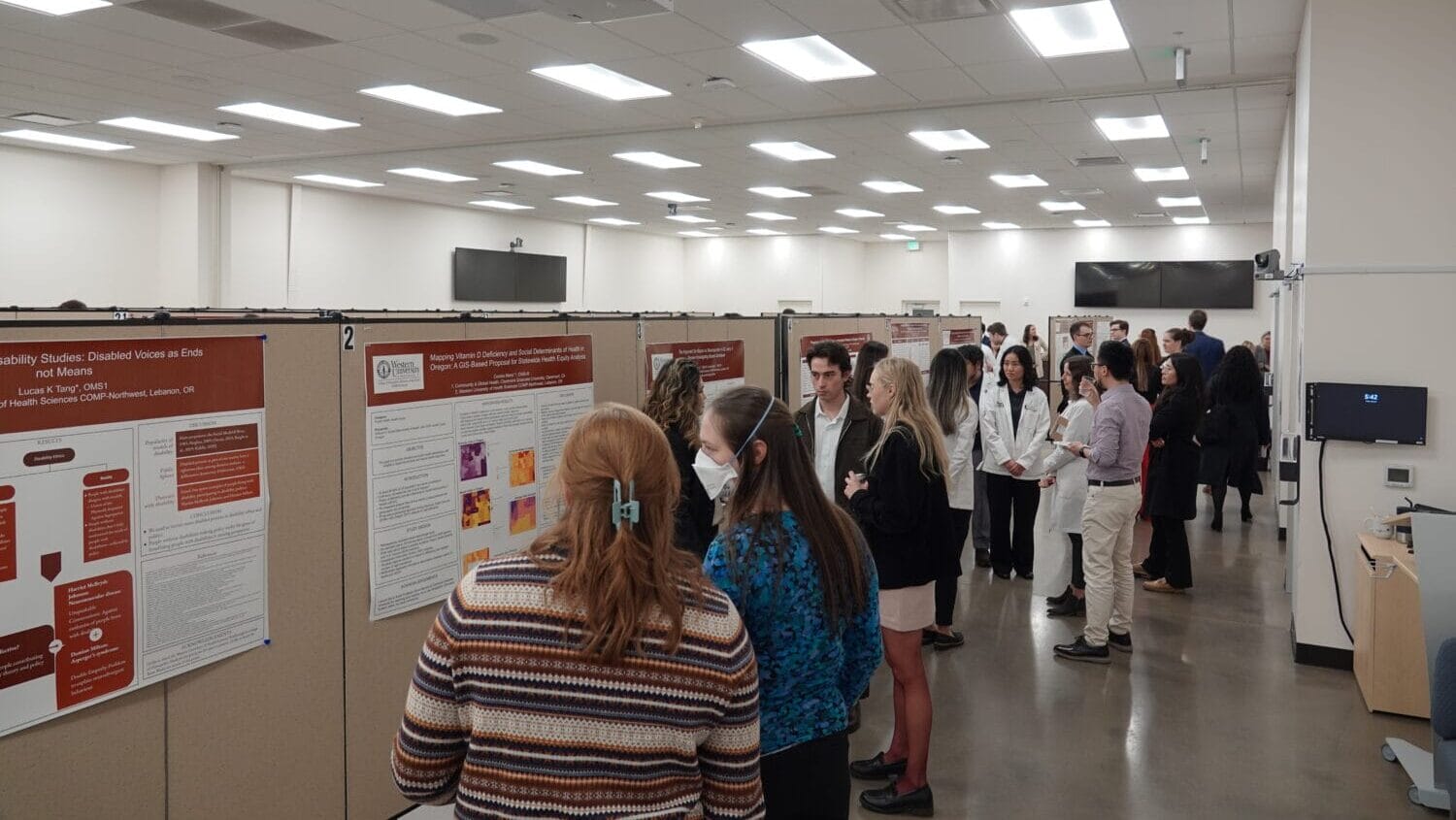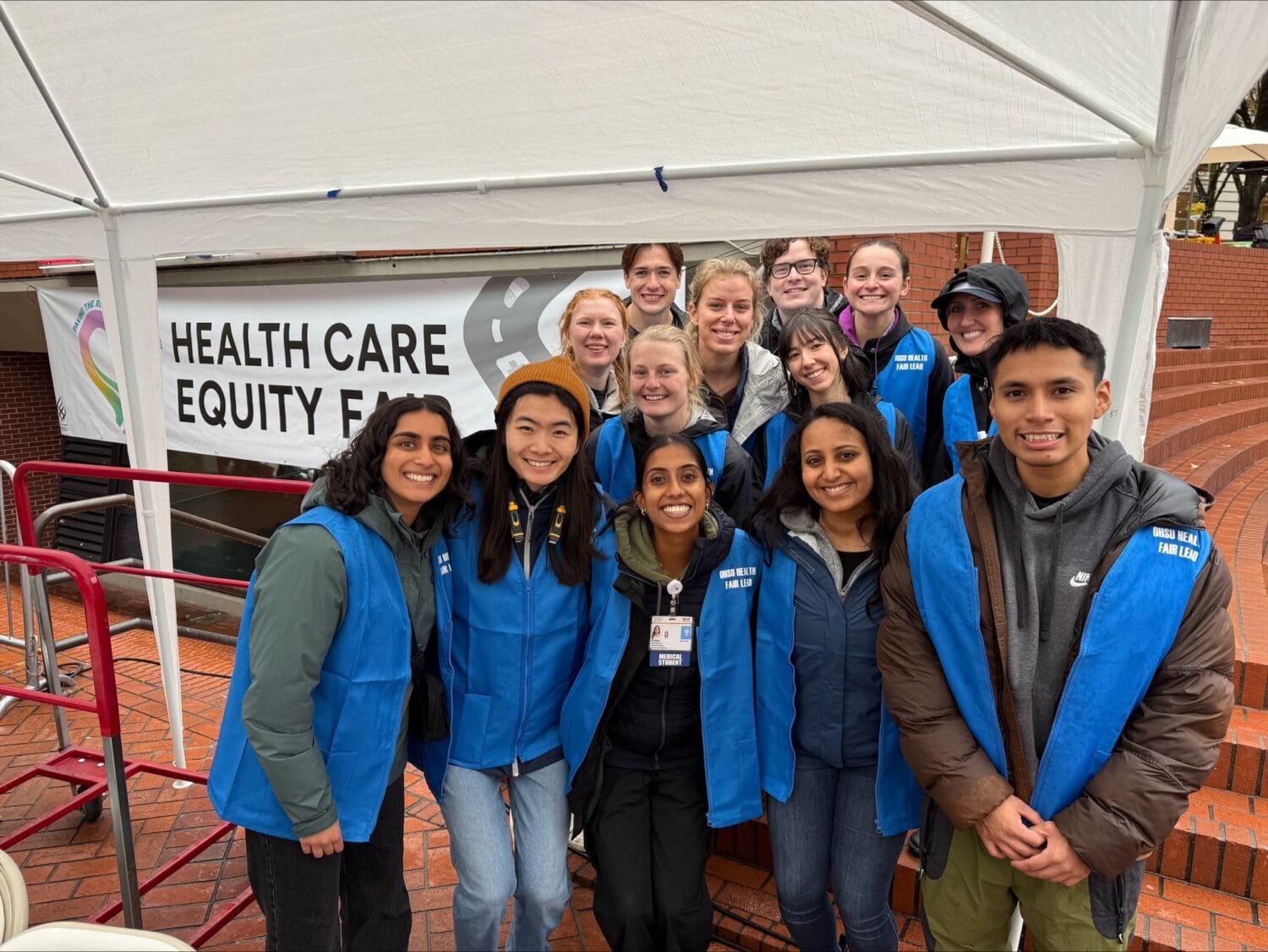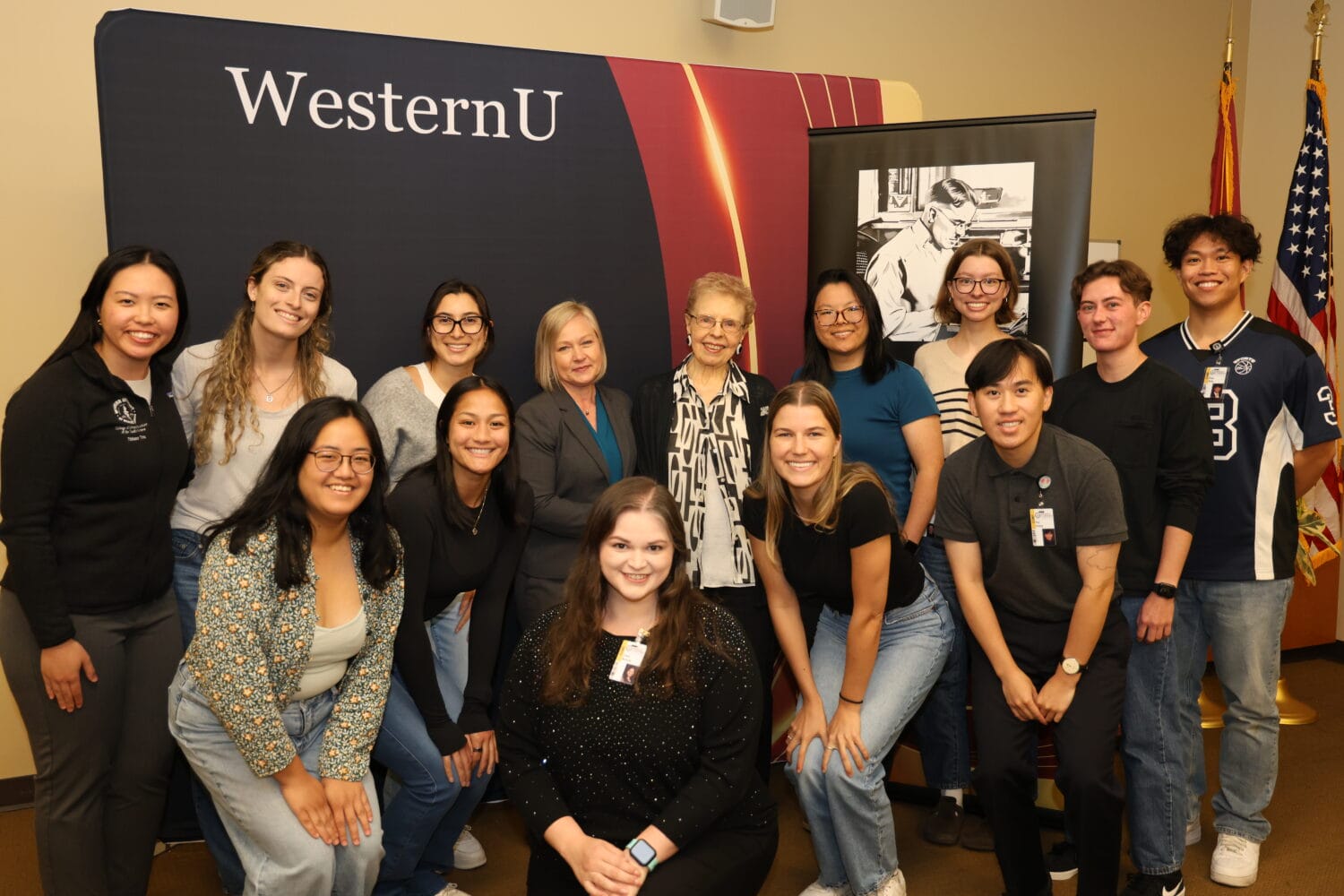Three COMP-Northwest students selected for Oregon loan forgiveness program
Three first-year College of Osteopathic Medicine of the Pacific-Northwest students received major state loan forgiveness awards for committing to practice in rural areas.
Kendall Shibuya will receive $66,000 over two years, and Sarah Crowe and Pam Anderson will each receive $105,000 over three years from the Oregon Office of Rural Health’s Primary Health Care Loan Forgiveness Program.
“This marks the first time that our school has been recognized and our students rewarded with such a scholarship,” said COMP-Northwest Clinical Professor of Internal Medicine/Neurology Paul Aversano, DO. “The scholarship requires the recipient to practice in a rural setting one year for each year of scholarship. Our profession has a long history of providing medical care to rural America. Awards such as this one recognize this dedication, and demonstrate that we are part of the medical care solution in this country.”
The program requires students to participate in a special Rural Health Track, which teaches them about the unique aspects of rural health care. Ten percent of their clinical rotations must be in rural regions. Students who intend to go into primary care residencies — including family medicine, internal medicine, pediatrics and general surgery – may apply.
Students in COMP-Northwest’s Rural Health Track cohort will complete the standard osteopathic medicine (DO) curriculum offered by COMP, as well as an innovative curriculum with training in core competencies vital to the practice of primary care medicine in rural and medically underserved communities, said Rural Health Track Co-director Kate McCaffrey, DO. The curriculum includes on-campus and online didactic sessions, participation in the Family Medicine Rural Health Club, and a community project.
Anderson said she looks forward to learning how to run her own business and enhance her leadership skills in the Rural Health Track because she is interested in becoming a family practice physician. Many towns in Oregon are in need of family care doctors, she said.
“I like having time to sit down with a patient,” Anderson said. “Hopefully I will be treating a large part of the family. By developing a relationship and getting to know them, I can encourage a healthier lifestyle.”
Receiving this scholarship is important for more than just monetary reasons.
“It was such a confidence boost, as if somebody said, ‘Yes, you can do this,’” Anderson said. “My idealistic dream is for real. It was confirmatory for me.”
Crowe, who was born in California and raised in Portland, said the rural health program fits her life goals.
“Family medicine is my goal, because I feel like it will allow me to have the largest impact on community health as a doctor,” she said. “While raised in the city, I have come to love small towns, and would like to remain in one, preferably where I am now. This program makes my goal seem much more attainable and much less like a gamble. I am excited that a program like this exists to help me reach my goals and to help the people of Oregon receive the health care they need.”
Shibuya said she wants to help address health inequities and have a positive impact on an underserved community, while also living a simple and sustainable life close to nature.
“I believe that access to health care is a right, not a privilege,” Shibuya said. “For this reason, I think addressing the health care needs of rural areas by improving access and resources is an important step toward improving our health care system. When I worked at the Fred Hutchinson Cancer Care Center in Seattle, I saw many patients who traveled for hours from rural areas to receive the care they needed. While I don’t expect to be able to provide cutting-edge cancer care, I hope to help prevent the need for that trip by providing preventative and holistic health care.”



